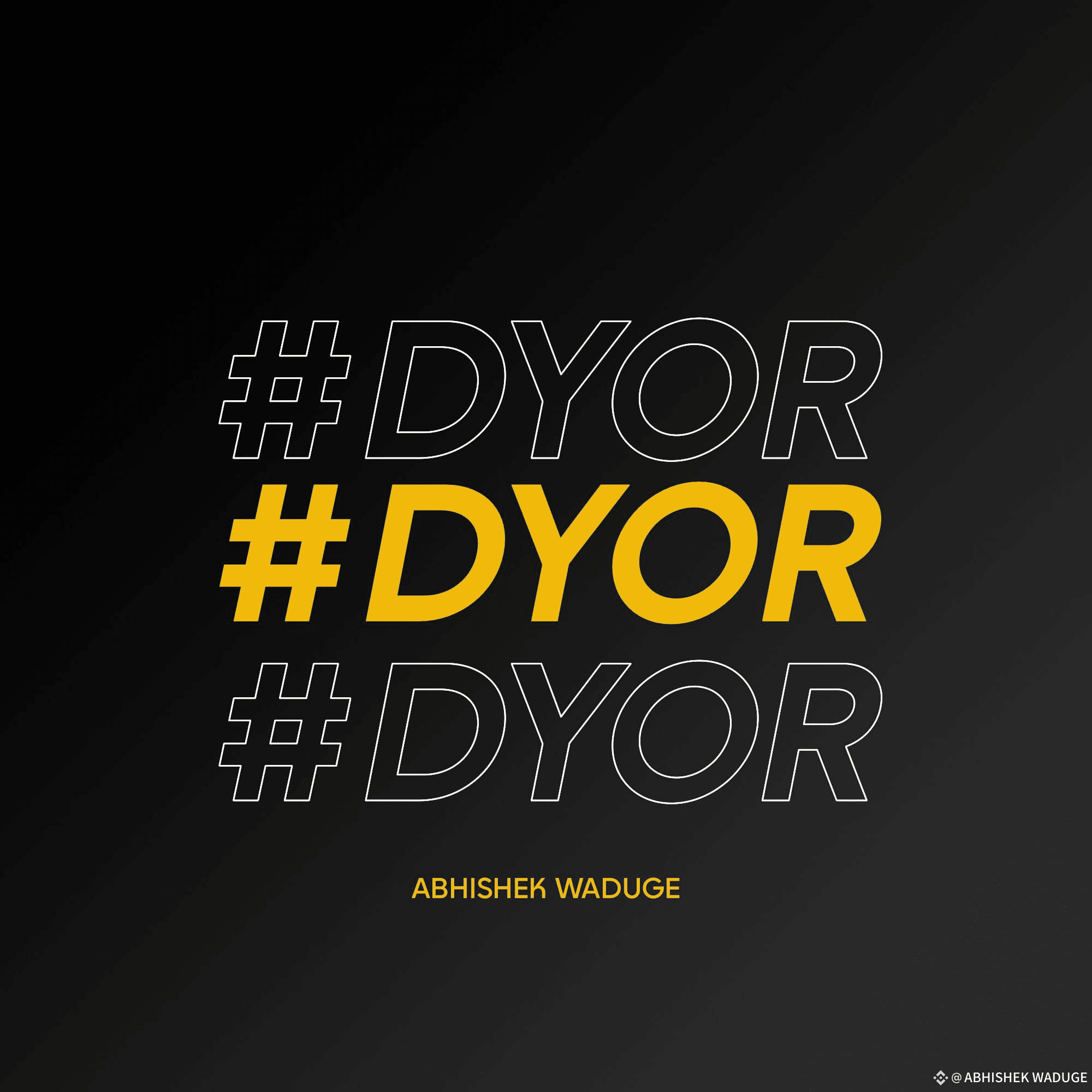
Imagine you're about to invest your hard earned money or even just your time and excitement into something new. Would you blindly follow what a stranger on the internet says, or would you want to understand it yourself? In the fast-paced, often volatile world of cryptocurrency, that "understanding it yourself" is absolutely critical.
Why is DYOR So Crucial in Crypto?
It's a Wild West (Sometimes): The crypto space is innovative and exciting, but it's also largely unregulated. This means there aren't always traditional safety nets you might find in more established financial markets. Scams, pump-and-dump schemes, and genuinely flawed projects are sadly common. DYOR is your best defense.
Information Overload & Misinformation: The internet is awash with crypto information – from genuine analyses to biased opinions and outright lies. Without doing your own digging, it's incredibly easy to fall for hype, FUD (Fear, Uncertainty, Doubt), or misleading narratives.
Understanding Risk: Every cryptocurrency project carries different levels of risk. Some are well-established, others are experimental. Some have clear use cases, others are just ideas. DYOR helps you gauge these risks and decide if they align with your personal risk tolerance.
Informed Decision-Making: When you truly understand a project – its technology, its team, its goals, and its potential pitfalls – you're making decisions based on knowledge, not just emotion or a stranger's tweet. This leads to better long-term outcomes and fewer regrets.
Taking Ownership: Ultimately, it's your money and your future. Relying solely on others' advice means you're outsourcing your financial decisions. DYOR empowers you to be in control.
How to Actually "DYOR" – A Practical Guide
So, what does doing your own research actually look like? It's not about becoming an expert overnight, but about asking critical questions and seeking out reliable sources.
The Project's Whitepaper/Litepaper: This is the foundational document of any legitimate crypto project. It outlines the technology, purpose, tokenomics (how the currency works), roadmap, and team. Don't just skim it; try to understand the core concepts. If a project doesn't have one, that's a huge red flag.
The Team Behind It: Who are the developers? Do they have relevant experience? Are they publicly known or anonymous? An experienced, transparent team adds credibility. Check their LinkedIn profiles, past projects, and community engagement.
Use Case and Problem Solved: What problem is this cryptocurrency or blockchain solving? Is there a real need for it? Does it offer a unique solution or is it just another copycat? A strong, clear use case is vital for long-term value.
Technology and Network: Is it built on an existing blockchain (like Ethereum or Solana) or does it have its own? How does it achieve consensus (Proof of Work, Proof of Stake, etc.)? Is the code open-source and auditable? A basic understanding of the tech helps you assess its robustness.
Tokenomics (Token Economy): How many tokens are there? How are they distributed? Is there a vesting schedule for the team and early investors (meaning they can't dump all their tokens at once)? Is there a burning mechanism or staking rewards? Understanding the supply and demand dynamics is crucial.
Community and Social Presence: How active and engaged is the project's community on platforms like Twitter, Telegram, Discord, and Reddit? Is the discussion healthy and informative, or just hype? Be wary of overly aggressive marketing or communities that shut down critical questions.
Roadmap and Development Progress: Does the project have a clear roadmap for future development? Are they hitting their milestones? Check their GitHub (for code updates) and public announcements. Consistent progress indicates a serious project.
Competitors: Who are the project's competitors, and how does it differentiate itself? What are its unique selling points? A project existing in a vacuum is rare and often suspicious.
Security Audits: Has the project's smart contract code been audited by reputable third-party firms? Audits help identify vulnerabilities that could lead to hacks or exploits.
News and Analysis (from Multiple Sources): Once you have a foundational understanding, look at what reputable crypto news outlets and independent analysts are saying. But remember: always cross-reference information and be critical of any source.
In crypto, the mantra "Do Your Own Research" isn't just about protecting your investments; it's about empowering yourself in a rapidly evolving financial landscape. It takes effort, patience, and a healthy dose of skepticism, but it's the most valuable skill you can develop to navigate this exciting, yet complex, space. So, before you click "buy," take the time to truly understand what you're getting into. Your future self will thank you.